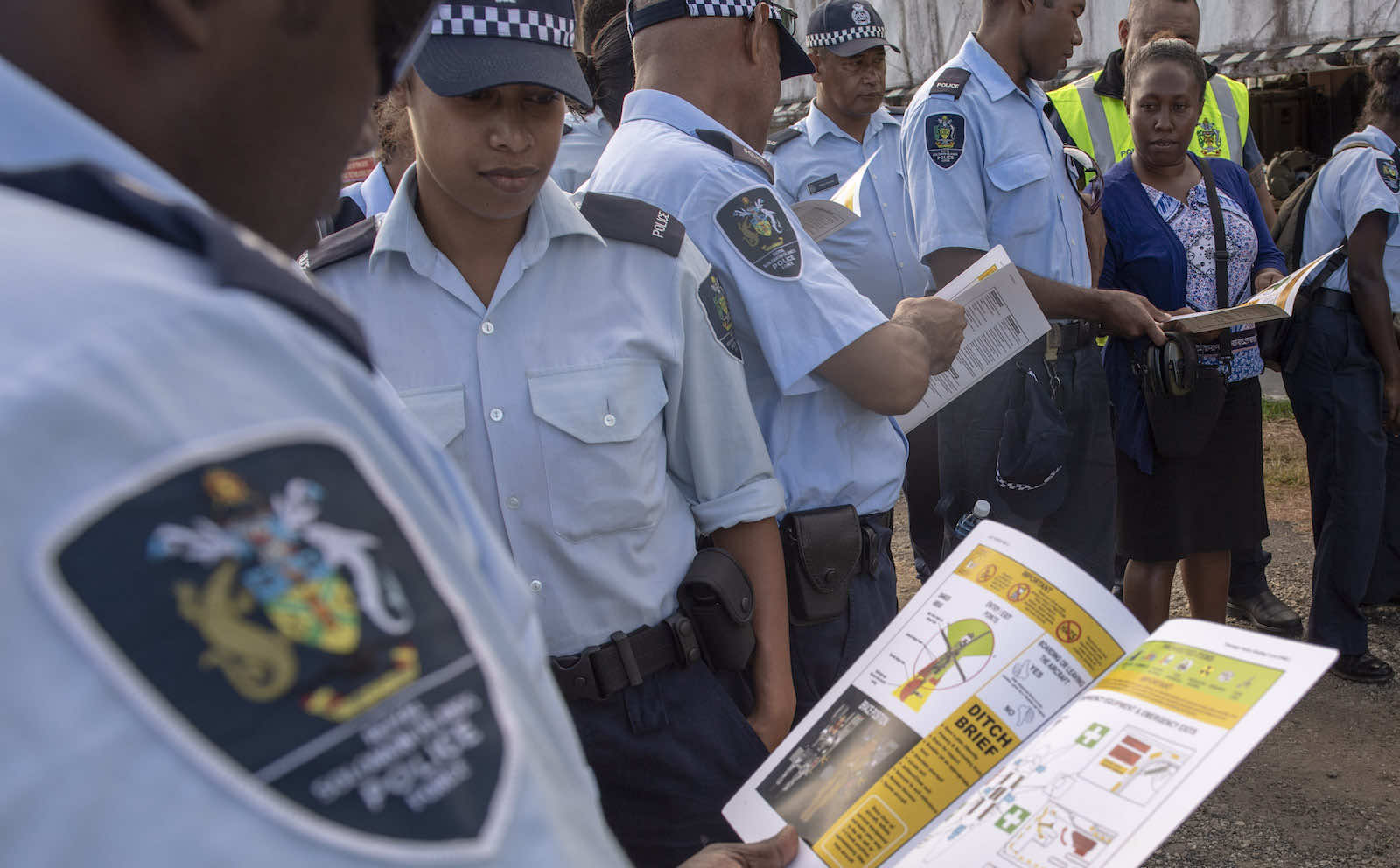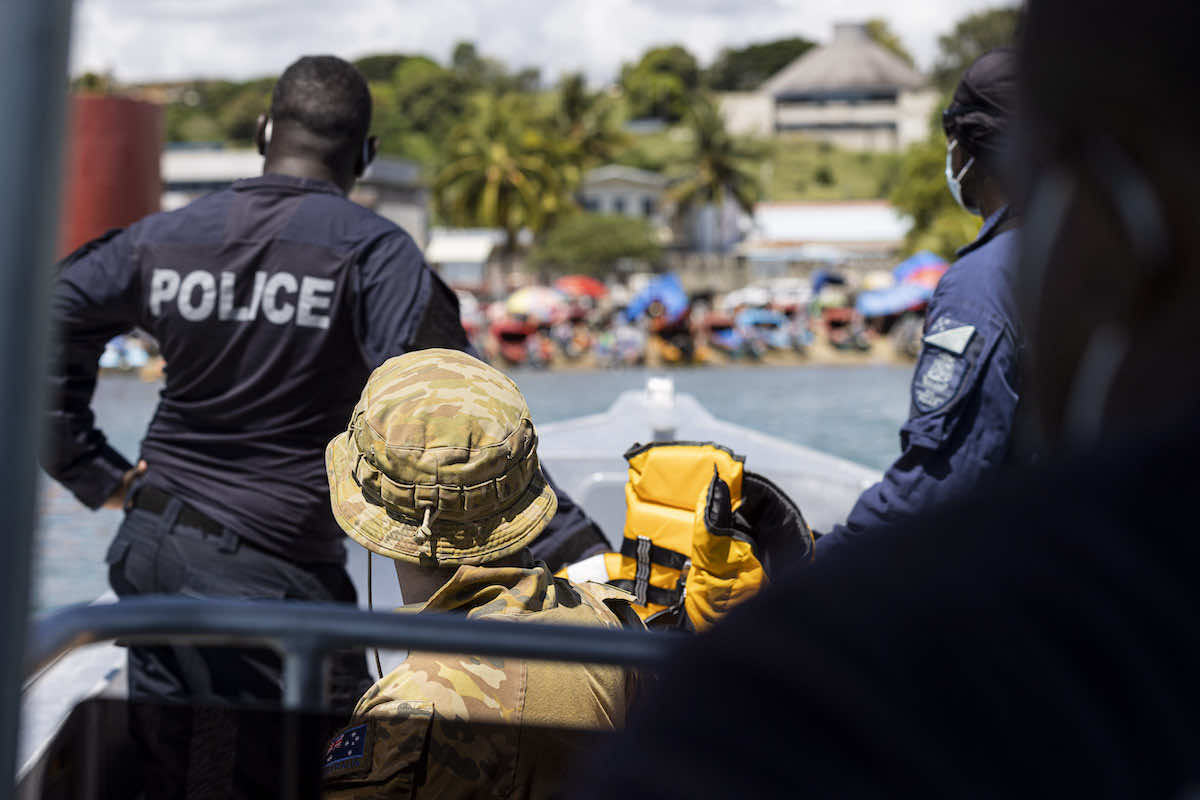PATRICK KAIKU
.

Reactions to the security agreement between Solomon Islands and China were swift and relentless. Much of the rhetoric is creating needless anxieties. It demonstrates that an unwritten rule exists in the practice of Pacific diplomacy. Supposedly sovereign Pacific states must choose wisely who they do business with. Their relationships must also not be disruptive to stability and peace in the region – read here as the geostrategic influence of traditional powers in the Pacific.
Pacific states stand to be shamed over perceived foreign policy missteps, or singled out as unappreciative members of the Pacific “family”. The Australian media and pundits have successfully framed Solomon Islands as reckless, further emboldening both Solomon Islands and China to dig in. Prime Minister Manasseh Sogavare summarised it well: “We find it very insulting to be branded as unfit to manage our sovereign affairs, or have other motives in pursuing our national interest”.
In this, what role should Papua New Guinea play?
PNG benefits from its relationship with China. It would be hypocritical to dissuade Solomon Islands from engagement with China. What is needed by PNG is a proper understanding of the situation in Solomon Islands and the national interest of Solomon Islands as expressed through the security agreement. This will enable PNG to align its own interests with Solomon Islands towards potential common-ground solutions. PNG must continue to engage with Solomon Islands, communicating the idea that the stability and security of Solomon Islands is also a matter of national interest to PNG.
In recent decades countries in Melanesia, as close observers note, “have experienced more serious internal problems of insecurity and instability than their smaller Micronesian and Polynesian counterparts”. Lack of capacity, discipline and morale in law enforcement are in themselves threats to security in Melanesian states because of the complicity of law enforcement in crisis situations.
At the core of the Solomon Islands-China deal is the capacity and resource needs of Solomon Islands domestic law enforcement. Chinese businesses, particularly, have borne the brunt of civil unrest in the country since the early 2000s. Because China is now Solomon Islands’ largest trading partner, riots and anti-Chinese unrest are a blemish on the Solomon Islands, with the Solomon Islands unnecessarily labelled a Sinophophic country. It complicates not just the trade relations between Solomon Islands and China, but also their newly established diplomatic relations. The Solomon Islands is not only seeking support for its domestic law enforcement priorities. It is also using the agreement as a diplomatic gesture, assurances that China needs in a country that has experiences of violent anti-Chinese outbursts.
But what are the costs to regional initiatives?
 Royal Solomon Islands Police Force officers training this month with the Australian Defence Force in the use and maintenance of aluminium long boats in Honiara, Solomon Islands (Defence Department)
Royal Solomon Islands Police Force officers training this month with the Australian Defence Force in the use and maintenance of aluminium long boats in Honiara, Solomon Islands (Defence Department)To work with Solomon Islands, PNG must advocate the use of regional cooperation and regional intergovernmental organisations. Law enforcement capacity building and resourcing is already a regional priority. For instance, in the 2018 Boe Declaration on Regional Security, there is specific emphasis on “sharing of knowledge, capacities, joint training and exercises, and capability development”.
When Pacific states bypass regional priorities that have been collectively agreed upon, what effect does this have for confidence in regional solutions to the challenges facing the region?
External support is only as good as how it is tailored to reflect specific needs and priorities in the Pacific. A detailed assessment of the outcomes of the Regional Assistance Mission to the Solomon Islands demonstrated that there indeed is a common police culture in the Pacific. With these shared aspects of policing, the Pacific region, and especially countries in Melanesia, should focus their efforts on law enforcement cooperation and the benefit from peer-to-peer review that is inherent in such areas of collaboration.
Australia is presently funding the Pacific Community for Law Enforcement Cooperation, which is lauded as a “regional coordination mechanism that supports capability development in law enforcement priority areas”. New Zealand and Japan are also involved in a capacity building program that is delivered at the University of the South Pacific. This program is a useful template for the establishment of a regional police training facility. A regional training facility can operate under the auspices of an existing regional organisation.
One can understand why the Solomon Islands justified its security cooperation with China, seeking to diversify its security interests. Current initiatives may not necessarily be adequate or appropriate, or there is no ownership of the regional security agendas or priorities by some member states in the Pacific. Regional security cooperation, generally, is perceived as an externally driven agenda, lacking coordination within the permanent convergence points of the regional architecture. Regional commitments on security exists only as a “patchwork of agreements, arrangements and institutions”.
External partners can work through this facility, channelling their assistance and expertise. The benefit of such a facility is that is insulates countries in the region from the meddling influence of big powers, and is subjected to oversight by member states. A regional facility that coordinates law-enforcement capacity building and resourcing needs will be useful in aligning with multilateral institutions, benefiting from best practices.
The fallout from the Solomon Islands-China deal has not allowed for healthy dialogue. While PNG respects Solomon Islands sovereignty, trusting the resilience of that country’s domestic political processes and institutions, it must work to find common ground. There are regional solutions to regional problems that have not yet been fully exhausted and domesticated in the national agendas of member states of the Pacific Islands Forum.
No comments:
Post a Comment